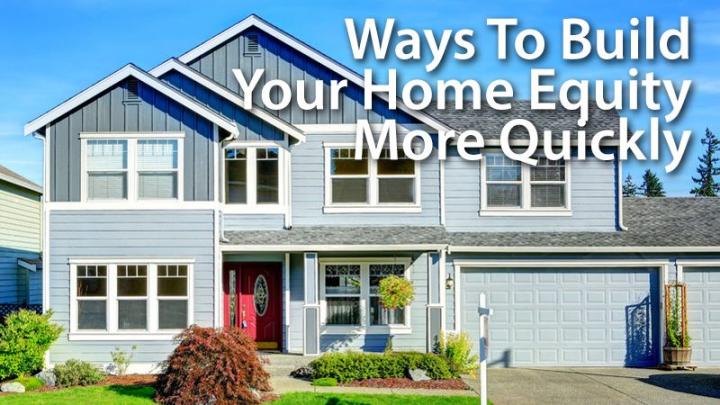One of the primary goals of home ownership should be the building of equity in your home. Equity is simply the difference between the current value of a property and the balance of all mortgage obligations.
For example, if you have a home that is valued at $375,000 (based on an appraisal or a Comparative Market Analysis) and a mortgage balance of $175,000, you have $200,000 ($375,000 -$175,000) equity in your home. As long as the market remains stable, this is like money in the bank. As your house value increases over time and mortgage payments you make reduces the level of your debt, your home equity increases.
Why Equity in a Home is Important?
Simply stated, the appreciation of equity in a home is one of the easiest and most successful paths to wealth that is available to you. To a large degree, it is almost painless—you make the mortgage payment that you would have to make anyhow and the balance is reduced. The value of the home, meanwhile, is rising. As a result, your nest egg should be growing. The quicker you find yourself at 100% equity—owning nothing on your home—the quicker the route to less financial stress and true wealth.
How to Build Additional Equity?
There are a number of ways to build additional equity in a home, some easier than others but all effective:
1) Higher initial down payment
The most obvious way to build additional equity is at the first opportunity—making a larger down payment at the time of purchase. This extra money is immediately “banked” in the home, making it much less tempting to spend.
2) Extra principal payments
Making extra payments of principal (or just adding money to your monthly payment designated to go to principal) has a double effect on your equity. First, every dollar you contribute reduces your debt by the same amount. Second, reduced debt means less interest paid, which means that each month more of your payment goes to principal and less goes to interest.
NOTE: Although most loans allow it, check with your lender to see if they accept extra payments of principal with no penalty.
3) Shorter mortgage term
The lower mortgage interest rates that we have seen recently means that for many buyers, they are able to either initially secure a mortgage with a shorter term or, if the are currently in a long term mortgage (such as 30 years) refinance and get a shorter term. Shorter mortgage terms mean that you will be paying down your principal much quicker and therefore gaining additional equity at a much faster rate.
4) Home improvements
When you improve the quality or size of your home, you also increase its value and thus your equity. Be aware, though, that although virtually all home improvement projects will bring some return, some are much more advantageous than others. For example, remodelling kitchens or bathrooms traditionally have brought a greater return than adding leisure amenities such as pools or whirlpools. To get the maximum equity enhancement, make certain that the kind of improvements you want to make will increase the home’s value appreciably.

